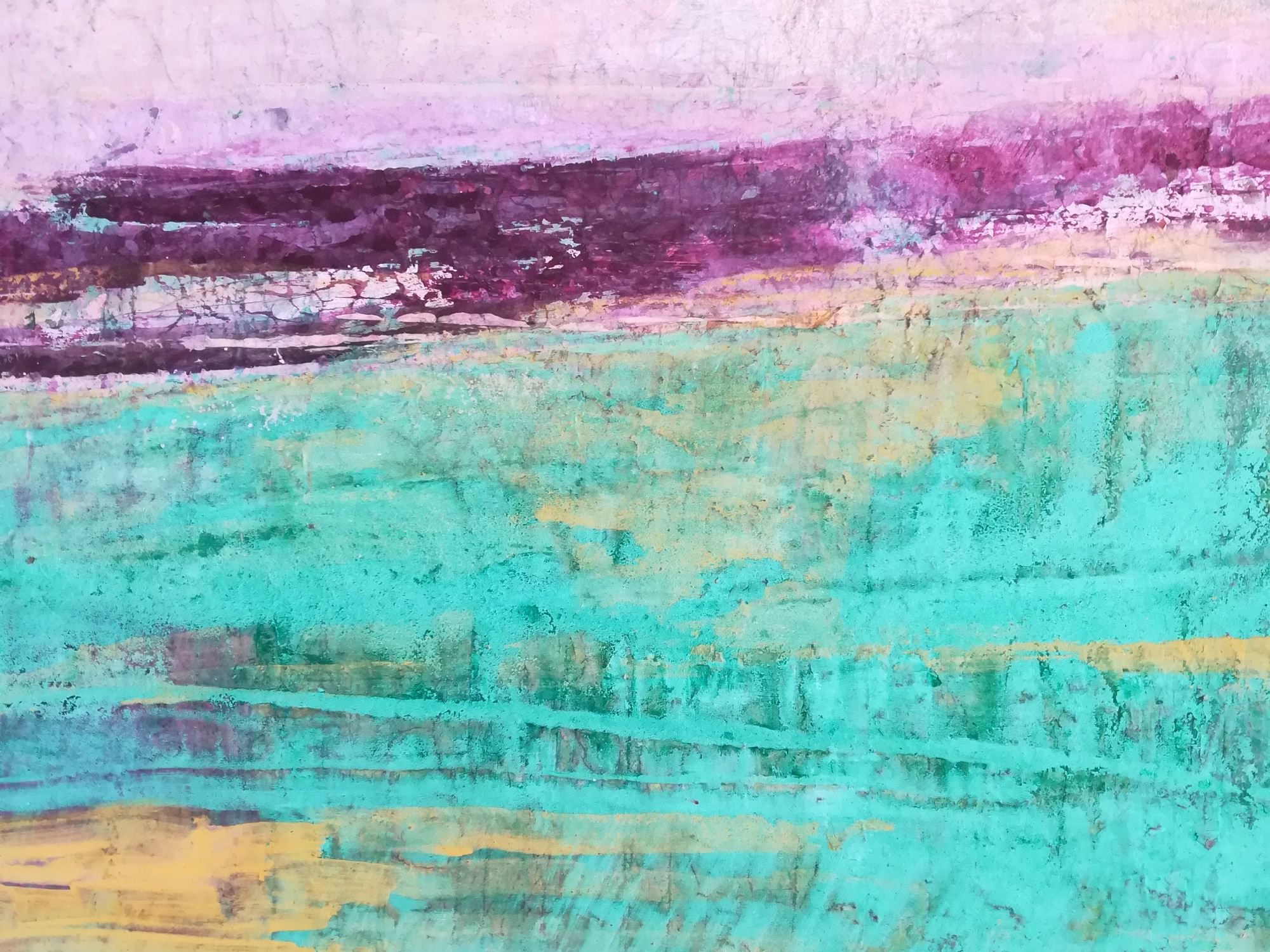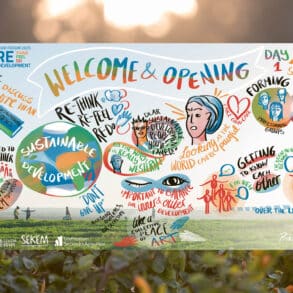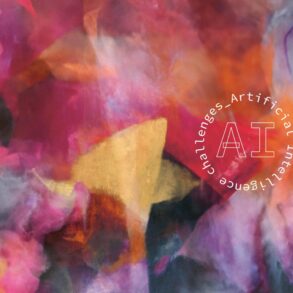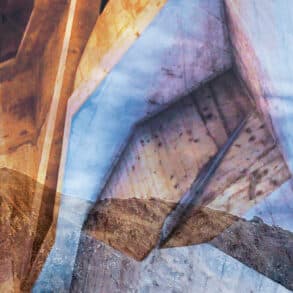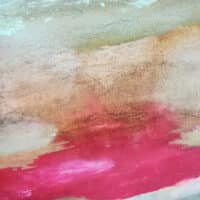I look at the beautiful, and the beautiful looks at me—this is how our present is created.
“And beauty lies exhausted in the streets,” says a song by Nick Cave. Homeless, unnoticed, rushed, exhausted, and tired, beauty lies on the side of the road and perhaps no longer feels itself. Yes, that’s how I also feel sometimes in the confusion and congestion of our times, when I can’t feel myself in the dimension of beautifulness. A dullness and narrowness have gradually taken hold of me, and I can hardly summon the strength to lift my gaze. Yet beauty is the very home of the human soul. And the human soul gives shelter to beauty. When I look out of beautiful eyes, life settles into its inherent harmony, even in the expression of ugliness. Beauty makes me soft and malleable, expands my heart, gives me gentleness, and lets me breathe right into my belly and into the sky. Something radiates in the beautiful.
I move through the world between body and spirit, between sensuality and meaningfulness. It is beautiful when the weight of the earth carries me without binding me and when my airy games or my longing for salvation do not uproot my feet. Beauty is when I float with a body that brings me the scent of lime blossoms and the smile of an old lady, the salty taste of the sea and the pacifying gesture of the driver I have just cut off, accidentally, of course. Beauty is when I float with a mind that can decipher these images and combine them into a poem of the living—one that lifts the veil of my assumptions and brings the light of my eternity through my heart and into my present being, when I am present in the vastness of this world and know about it.
Immersing Ourselves in the Uniqueness of the Moment
Michelangelo’s figures in the Medici Chapel will always be beautiful to me because I looked at them with a friend, and the three of us—me, my friend, and the figures—entered into a conversation about beauty. What keeps this in my heart as a beautiful event was the possibility of interrelation. I usually look for and find beauty in what happens between me and the world. That time in Addis, in the car with my 75-year-old guest Heinz and my Ethiopian friend Sami, listening to Stevie Wonder’s “I Just Called to Say I Love You” on the radio, is one of my most beautiful experiences. It was as if we had all the time in the world and the afternoon sun in our hearts, as we three so very different people sang along. Heinz, in the back seat, said: “Spain 1985 on the beach, and I was so in love!” For me, the blindness of the singer was a symbol of the inwardness of perceiving beauty. And Sami, as always, just smiled, somehow knowing and enjoying as he maneuvered us through the traffic with the calmness of a buffalo. Three biographies had melted together for a brief moment in the love of life.
The perceived uniqueness of a situation, its irrevocability and non-repeatability make it precious. It is also made beautiful by something else: a very specific kind of presence that is perceived more through the senses, is not so strongly focused, and is more of a listening activity. It arises from the interplay of lightness and heaviness, with enough space for everything that cannot be forced, that does not need solutions, that can be allowed to happen, and is expressed in the gesture of giving. In beauty, people perhaps even give gifts to themselves because they become aware of themselves in a certain way. I am a present, involved, living being, and I am aware of this. Without my concrete, individual presence, the situation, the text, the landscape, the song, the picture, the other become something different, through the interplay with some other individuality. In each case, I am the one who plays along and observes what happens and continues to play. I am part of an event that is happening right now and also through me, without wanting to fix what is happening. The fact that a uniqueness arises from this—a moment on this earth, felt from the heart—is an incredibly beautiful fact for me. Where I find such things in the world, I find beauty.
Fleeting Testimonies of Our Becoming
So beauty is not something external for me, although it can also express itself there. I don’t look for it as a measure of things. I find it where I am touchable and because I am touchable. I find it where I give something of myself to that which touches me—freely, because otherwise, it will collapse. In beauty, these two touch each other—light and life touch each other and bear witness to the enduring in the fleeting brilliance. Such processes give rise to works of art and social sculptures, and, above all, beautiful people. Or to put it another way: through the eye of beauty, I cast my light on this world and receive myself back from the cosmos, including a love that lets me see you consciously and lets you be who you are.
So, can’t we just be beautiful in order to survive? Yes and no. Beauty needs a hand that reaches out to it when it lies exhausted in the gutter. Beauty itself must be perceived in order to unfold its effect on me. And the will to confront exhaustion, to resist fear without becoming totalitarian, to recognize oneself in the speech of others, and to love the imperfect is also beautiful. We are beautiful because we are human beings—people who also fail in their attempts to bring beauty, goodness, and truth into the world. That’s why I want to remain a lover of humanity.
Translation Laura Liska
Image Painting by Ulrich Schulz, “Schön Sein Wollen” [To want to be beautiful] 2015. Putty. Canvas, glue, ash, marble, semi-precious stone powder, pigments.

